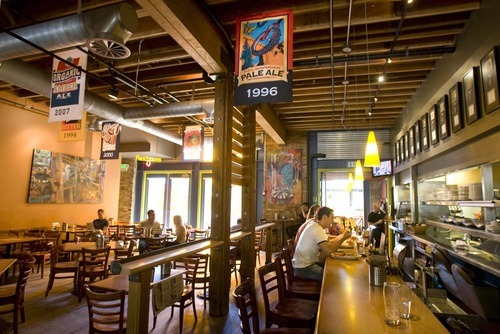This is an archived article that was published on sltrib.com in 2012, and information in the article may be outdated. It is provided only for personal research purposes and may not be reprinted.
After a year of scandals in the state's liquor monopoly, a senate committee on Monday unanimously passed reform legislation, without discussing any of the bill's proposed oversights for the troubled agency that oversees alcohol.
Instead, the committee spent its time discussing an amendment to the 81-page SB66, which would have reduced state price markups for small breweries and wineries. But Sen. President Michael Waddoups successfully killed that proposal.
Waddoups, R-Taylorsville, argued that reductions in the state's alcohol taxing structure could spur more production, which he contended would lead to more drunk driving and teen drinking problems, without offering specifics to back up his claim.
Two other liquor bills are unlikely to pass.
Rep. Gage Froerer, R-Huntsville, is sponsoring HB270, which would raise the number of restaurant liquor permits that are based on the state's population. And, SB75, sponsored by Senate Minority Leader Ross Romero, D-Salt Lake City, would increase bar permit numbers, allow drink specials and get rid of restaurant partitions, dubbed Zion Curtains, which hide bartenders from public view.
"Those are dead," Waddoups said of Froerer's and Romero's bills. "They will increase access to alcohol. When you increase quotas you increase access to alcohol. There's no point having a quota if the minute you get close to it you raise it. The quotas are there for a reason."
"That's news to me," Romero said, reacting to word that his bill may not be passed. "We have already exceeded the number of liquor licenses by population, so we're living in a reality that's not accurate.
"I think it's unfortunate that these ideas won't even be getting a hearing this year."
On Monday, the reform legislation passed out of the Senate Workforce Services and Community and Economic Development Committee. SB66 would add two more commissioners to the five-member board that oversees the Department of Alcoholic Beverage Control (DABC). The expanded commission in turn, would divide itself into two committees to focus on regulation and retail sales. The full commission would make final determinations.
Under the bill, the commission also would have independent auditors, who would report directly to the board, rather than to senior staff members — a tradition that has been in practice for years.
The bill's sponsor, Sen. John Valentine, R-Orem, said the independent auditors would provide direct — rather than indirect — information to the part-time commission.
Richard Sperry, chairman of the commission, welcomed the changes, saying if the board would have had independent auditors, mismanagement at the DABC might have been uncovered sooner.
Legislative auditors have reported that senior DABC managers routinely rigged bids and split millions of dollars of invoices to avoid state procurement laws. For years, however, state examiners have raised concerns about managers artificially splitting invoices. But the makeup of the liquor-control board changes periodically as members' terms expire, and no one took action.
The most recent audit was prompted by complaints involving business transactions, totaling $370,000, between the department and a company owned by the son of former executive director Dennis Kellen. The Attorney General's Office is looking into the allegations.
Twitter@DawnHouseTrib





